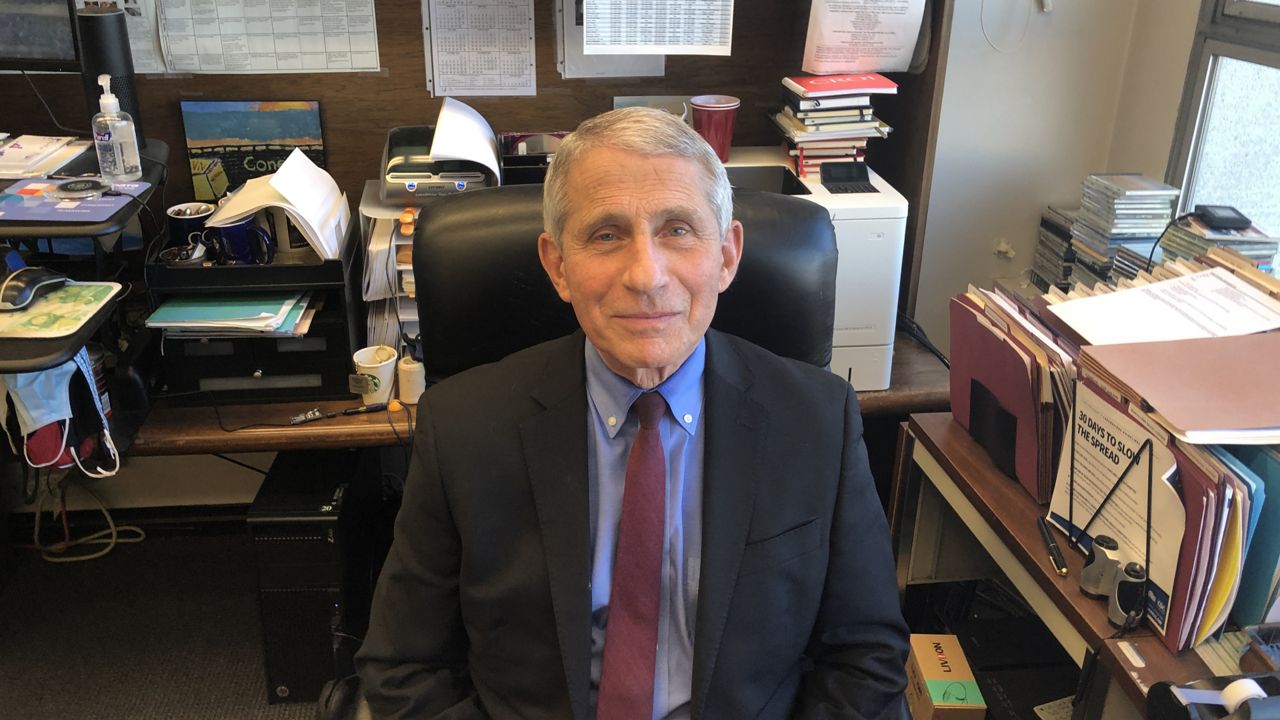President Joe Biden has pledged to practice transparency when it comes to the federal government’s response to the coronavirus pandemic, and has been holding daily briefings with health experts in an attempt to keep his promise.
As part of this effort, three of the administration’s leading experts on the coronavirus — and Biden’s plans to tackle it — took to Twitter on Thursday to field questions from the public: Dr. Anthony Fauci, NIAID administrator and the nation’s leading infectious disease expert; Andy Slavitt, senior adviser to the president on the coronavirus response; and CDC Director Dr. Rochelle Walensky.
To answer questions from the public, Dr. Fauci took over the official White House COVID-19 Response Team Twitter account, while Slavitt and Dr. Walensky responded from their own accounts.
Here were some of the most-asked topics and what the three experts had to say:
Many questions centered on the available coronavirus vaccines and if people should pick and choose which to get.
There are currently two approved vaccines against the coronavirus in the United States: The Pfizer-BioNTech jab has a 95% efficacy rate in protecting against the disease, and the Moderna vaccine is 94% effective. Both vaccines require two shots spaced out over approximately three weeks.
On Thursday, one user asked Dr. Fauci which of the vaccinations he recommends — to which the doctor said he urges everyone to “receive the vaccine that is made available to you.”
Fauci also noted that there are three additional vaccines in promising stage-3 trials, one each from AstraZeneca, Janssen, and Novavax.
Dr. Rochelle Wolensky also fielded questions about vaccines, with one person asking if it would be safe to visit their grandchildren after receiving both doses of their Pfizer vaccine.
“I know it is very difficult to be separated from family,” Dr. Walensky answered. “Even if you've been vaccinated, we still recommend against traveling until we have more data to suggest vaccination limits the spread of COVID-19.”
Should people still choose to visit relatives after being vaccinated, Walensky urged Americans to still socially distance from others, practice good hygiene, and continue to wear masks.
Experts are still studying whether receiving a COVID-19 vaccine “will prevent you from spreading the virus to others,” Walensky said.
“Currently, we do not have enough data to be able to say with confidence that the vaccines can prevent transmission,” Dr. Fauci answered in response to a similar question. “So even if vaccinated, you may still be able to spread the virus to vulnerable people. Masks are vital until we learn more & significantly reduce infections.
Some were curious about the promise of at-home COVID tests, questioning when they will be widely available for the American public.
“Earlier this week the Dept. of Defense and HHS announced our partnership with a company called Ellume that manufactures over-the-counter, self-performed test kits,” Slavitt answered. “There are more announcements coming, but expect a lot of growth over the summer!”
The purchase was announced by officials on Monday. Agencies awarded more than $230 million to Ellume, an Australia-based company, guaranteeing at least 8.5 million kits for the U.S. this year.
The Ellume test can provide results in as little as 15 minutes. The tests will soon be available for purchase both online and in drugstores, including CVS and Walgreens.
While there are many variants of the coronavirus circulating around the world, health experts are primarily concerned with the emergence of three: the B.1.1.7 variant, first detected in the United Kingdom; the B.1.351 variant, which emerged in South Africa; and the P.1 variant, which has been linked to travel in Brazil.
On Thursday, one Twitter user asked Dr. Fauci whether any of the currently approved COVID vaccines are also effective in protecting against the known mutations of the virus.
“Lab studies show mRNA vaccines induce a high level of neutralization when tested against B.1.1.7. They induced a somewhat lower level of neutralization against B.1.351,” Dr. Fauci answered. “However, we expect the vaccines to continue to protect against symptomatic & severe disease.”
Still, Fauci stressed that there is currently not enough data “to be able to say with confidence that the vaccines can prevent transmission.”
“So even if vaccinated, you may still be able to spread the virus to vulnerable people. Masks are vital until we learn more & significantly reduce infections,” he added.
U.S. scientists have detected more than 500 cases of a variant first identified in Britain and expect it to become the cause of most of this country’s new infections in a matter of weeks. Another troubling variant tied to Brazil and a third discovered in South Africa were detected last week in the U.S. and also are expected to spread.
The Associated Press contributed to this report.



